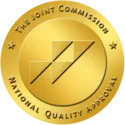Alcoholism Rehab Center in Idaho
Many people don’t realize it when their drinking has become a problem in their life. Drinking alcohol is accepted throughout most of society, especially during social outings and times of celebration. But this acceptance can sometimes hide a developing addiction.

Many people who can’t control their drinking don’t realize they have a problem until it starts to cause problems in their life. But becoming addicted to alcohol doesn’t make a person “bad” or “weak.” It means that they need help, and reaching out for help after developing an addiction is actually an act of strength. Alcohol addiction is often misunderstood. But healing is possible, and we at Eagle Creek Ranch Recovery are committed to helping men overcome their addictions through evidence-based treatments and holistic practices designed to heal the entire person from addiction.
Alcohol use is prevalent in the United States, and addiction is not always guaranteed. People may drink alcohol excessively and develop an addiction for the following reasons:
- Escaping stress or problems: Alcohol slows down the central nervous system (CNS) and causes relaxing feelings. But while drinking alcohol can reduce stress and anxiety, it is temporary and leads to more problems.
- Peer pressure: Young people can be susceptible to peer pressure, but it can be a danger at any age. The desire to be accepted by others and part of a group can lead someone to drink alcohol or drink more than they otherwise may have consumed.
- Mental health issues: Drinking alcohol can provide an escape from the symptoms of certain mental health disorders, such as generalized anxiety and clinical depression. But these effects are only temporary, and continuous use of alcohol can actually aggravate the symptoms of certain disorders and make things worse over time.
- Accessibility: Alcohol is legal in most areas and can be purchased in stores, not in a back alley or at a dealer’s house. Drinking alcohol is also a widely accepted activity. For this reason, many people may not see the risks and negative health effects of regular drinking.
- Environment: People who grow up around alcohol and whose parents or guardians drank in the home may be more likely to drink, even if the atmosphere isn’t positive or one of celebration.
Seeking help as soon as you notice a problem with your drinking can help reduce the risk of alcohol use disorder. Physically healing from alcohol addiction is less painful if it is done before the addiction is severe (such as the person drinking alcohol every day).
Contact Eagle Creek Ranch
Recovery Today!
Why Wait? Find The Help You Need By Reaching Out To Us Today! Our Admissions Team Is Standing By.
WHAT IS ALCOHOL USE DISORDER?
Alcohol use disorder, also known as alcoholism, is the physical and psychological addiction to alcohol. The National Institute on Alcohol Abuse and Alcoholism (NIAAA) describes alcohol use disorder as the inability to stop or control alcohol use despite the negative social, occupational, or health consequences.
WHAT ARE THE CAUSES OF AN ALCOHOL USE DISORDER (AUD)?
Alcohol addiction develops when a person drinks so much that it causes a dependence on alcohol in the body. Over time, a person may drink solely to prevent withdrawal symptoms. They’re no longer having fun consuming alcohol, and they may see it as inescapable.
Not everyone who drinks alcohol is guaranteed to develop an addiction to alcohol. There are certain risk factors that may make someone more susceptible to developing an addiction. But having an addiction to alcohol does not make someone a weak person, or inferior to those who can drink alcohol without complications.
Signs And Symptoms
People who drink excessively often don’t think they have a problem. This means friends and family must be aware of the signs and symptoms. Friends and family can significantly impact a loved one’s choice to attend rehab.
Some of the most common physical, behavioral, and psychological signs and symptoms of alcoholism include:
- Slurred speech
- Impaired thinking
- Repeating themselves
- Memory impairment
- Poor coordination
- Wanting to stop drinking but being unable to do so
- Valuing alcohol use and obtaining alcohol as more important than work, school, and relationships
- Being secretive about alcohol use
- Becoming defensive or secretive about the amount of alcohol consumed
- Drinking in increasingly risky situations, such as driving
- Being in denial about a drinking problem
- Experiencing withdrawal symptoms when not having alcohol for extended periods
- Sleep issues
- Aggravation of symptoms of mental health disorders
- Signs of malnutrition or poor health

Risk Factors for Alcohol Use Disorder (AUD)
Although there isn’t a known cause of alcoholism, there are risk factors that increase the risk of developing this disorder.

Risk factors include:
- Having a parent with alcohol addiction
- Trying alcohol or starting to drink at a young age
- Not knowing healthy coping mechanisms (especially for symptoms of a mental health disorder)
- Normalization of drinking and/or alcohol addiction during upbringing
- Frequent exposure to alcohol in their social life
- Binge drinking
- Having low self-esteem
- High levels of stress
Knowing the risk factors for alcohol use disorder can help people stay aware of their drinking and minimize the risk of addiction.
HOW IS ALCOHOLISM DIAGNOSED?
To diagnose alcoholism, a person needs to meet the criteria in the DSM-5, which is published by the American Psychiatric Association (APS).
Besides having a pattern of alcohol consumption that causes significant impairment or distress, a person must have at least three of the following criteria in the past 12 months:
- Alcohol tolerance
- Withdrawal symptoms
- Drinking more than intended
- Unable to cut down or stop
- Drink alcohol becoming more time-consuming
- Isolation
- Withdrawing from social circles
- Drinking despite negative consequences
- Missing work or school due to consuming alcohol
- Cravings
- Dangerous activities while drinking
If a doctor or mental health professional diagnoses a person with an alcohol use disorder, they may recommend mental health treatment or an addiction treatment program to help the person focus on recovery.
ALCOHOL ADDICTION TREATMENT
If you struggle with substance abuse, there are treatment options available. People who attend rehab for substance abuse treatment typically receive various types of therapy. Depending on the severity of AUD, they may need medication-assisted treatment (MAT).
Of the 32.6 million people who have an alcohol use disorder, only about 7.7% of people seek treatment, according to the National Association of Addiction Treatment Providers. This may be due to shame, denial, finances, family responsibilities, or cultural stigma.
Types of Substance Abuse Treatment Programs
Many rehab programs are continuum-of-care programs. This means you either step down or up, depending on your needs. Inpatient programs are effective for severe addiction, while someone with a mild addiction may start in an outpatient program.
The types of treatment programs include:
Mental Health Services for Addiction
Working with a therapist is a big part of treating substance use disorders. Substance abuse and mental health can be treated simultaneously to improve the recovery process. So it’s useful to search for a recovery center that has mental health services. During therapy sessions, including trauma therapy, you begin to understand your relationship with substance use and learn ways to cope without it. Various therapies can also help manage a co-occurring mental health disorder.
Treatment may also include group therapy and specialized therapy (such as adventure therapy) to help you cope with addiction symptoms.
Types of Behavioral Therapy
Types of behavioral therapy that can help with addiction include:
- Cognitive behavioral therapy (CBT): CBT teaches you to recognize and avoid situations where you may be tempted to drink alcohol, along with coping problems and behaviors that may lead to drinking
- Motivational interviewing therapy: Motivational therapy helps you build confidence and motivation to stop drinking
- Family therapy: Family therapy services help you become aware of the damage you caused to your family members, rebuilds a healthy family unit, and may prevent substance abuse in the younger generation.
Medication For Alcohol Use Disorder
The FDA has approved three medications for substance use disorder treatment centers to use to treat alcohol addiction. Many people experienced reduced cravings with these prescription drugs.
- Naltrexone: Reduces alcohol cravings.
- Acamprosate: Reduces post-acute withdrawal symptoms.
- Disulfiram: Causes unpleasant symptoms like nausea, vomiting, and headache if you drink.
Not everyone needs or benefits from these medications in their journey to recovery. Medications work best when combined with psychotherapy, behavioral therapy, and a strong support system.
HOW LONG DOES DETOX TAKE?
Withdrawal symptoms of alcohol addiction can be severe and sometimes life-threatening, but medical detox helps people to rid their bodies of toxins safely. Detoxing from alcohol in an inpatient rehab program with professional treatment is the safest way to handle detox. The length of time and the severity of the detox will depend on a variety of issues, including:
- How long someone has been using drugs or alcohol
- The number and types of substances they’re abusing
- If the person is suffering from any co-occurring disorders
- If the person has other health issues that may affect or work against medications that support healthier detox
- Individual factors unique to the person (such as age, weight, gender, overall response to medication)
All of these factors contribute to how long medical detox will take. In most cases, though, people typically overcome detox in a week. In more extreme cases, it can take longer.
FINDING ADDICTION TREATMENT IN IDAHO

When you or a loved one is struggling with an alcohol use disorder, looking for addiction treatment in Idaho can be overwhelming. Medical professionals can provide recommendations for programs that may suit their patient’s needs best. However, it’s crucial to do research and talk to treatment centers for more information.
How To Pay for Treatment Services
Eagle Creek Ranch Recovery accepts most insurance plans. This includes a very large variety of private health insurance plans and employee assistance programs (EAPs). We will work with individuals who prefer to pay out of pocket for costs.
Contact Our Idaho Addiction Treatment Center Today!
It can be hard to get help for a loved one struggling with substance abuse or to find alcohol treatment programs for yourself. At Eagle Creek Ranch Recovery, we offer specialized treatment that includes addiction treatment and mental health care to support your recovery. Those suffering from substance abuse and mental health concerns can receive the support and guidance they need here at our facility.
With the help of our team at Eagle Creek Ranch Recovery, you can overcome alcohol and drug addiction, make a positive change, and achieve long-term sobriety. If you’re looking for additional treatment options, we also offer drug rehab for illicit drugs such as meth, heroin, opioids, and cocaine. Call us today to learn how we help rehabilitate and assist men in living a better life.

Clinical Director
Kendall Maloof is the clinical director at Eagle Creek Ranch Recovery. She is a licensed marriage and family therapist and has held multiple leadership roles before settling here at Eagle Creek Ranch Recovery. Kendall received her master’s degree in marriage and family therapy from the Chicago School of Professional Psychology in 2016. Her career in mental and behavioral health began in 2014 when she took up internships in both the nonprofit and for profit sectors. She interned at multiple reputable companies, such as The Living Success Center and 449 Recovery in California.
In 2019, Kendall became the clinical director of Sunsets Recovery for Woman, a dual diagnosis program in southern California. Kendall is a natural leader. She has an incredible ability to problem solve and stay calm in any situation. Kendall never fails to show up when she is needed, and her calm demeanor makes her team and clients feel at ease. Eagle Creek Ranch Recovery is proud to have Kendall as our clinical director.


